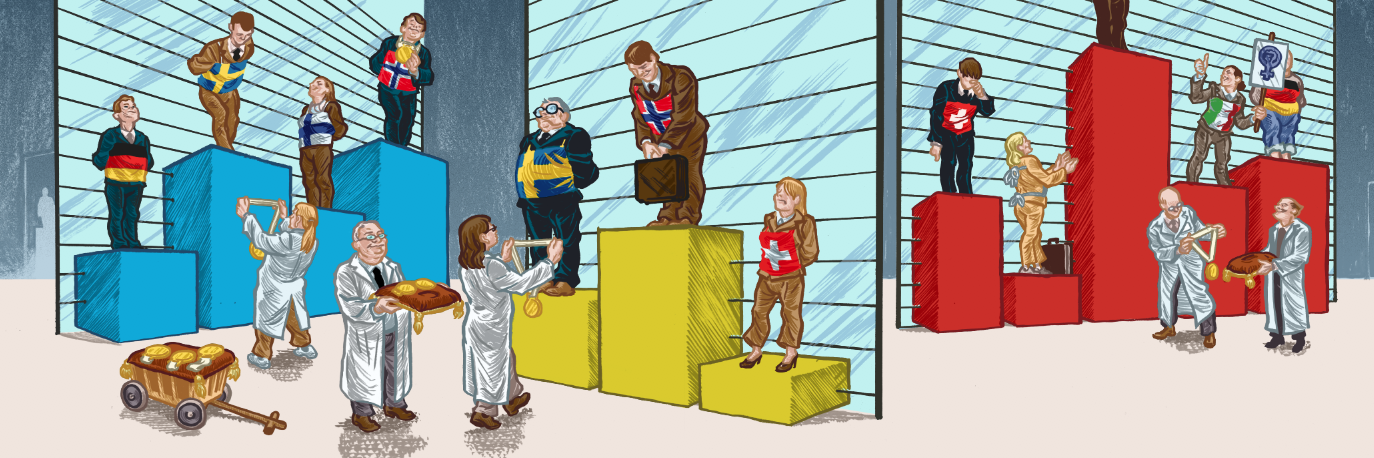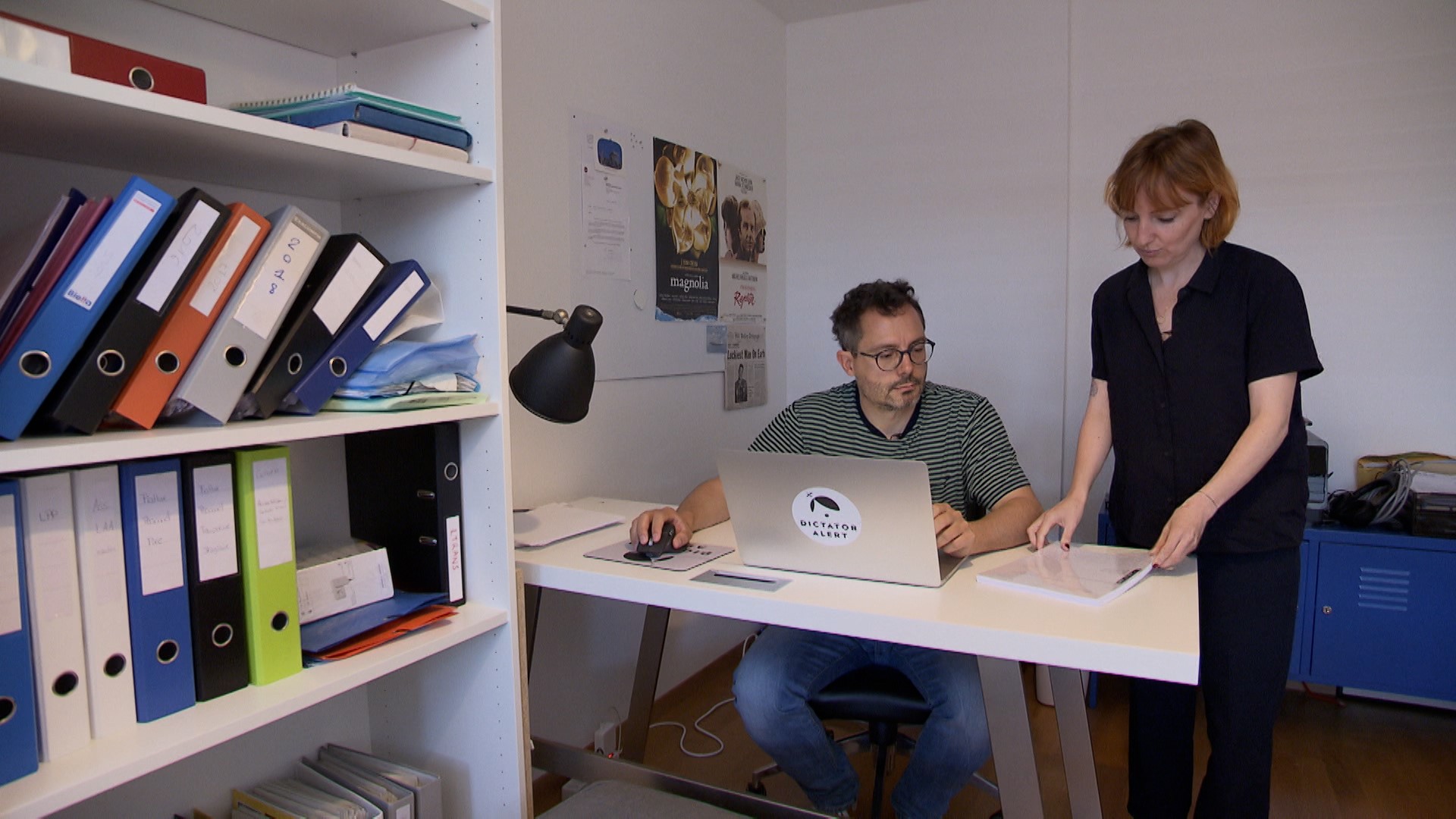
Everybody is in favour of democracy, but in very different ways
The “Summit for Democracy”, organised this week by US President Joe Biden, shows that people power is not interpreted the same way everywhere.
Earlier this week a surprising “White Paper” was published with the attractive title “Democracy That Works”. It contains nice lines, such as: “democracy is the right of the people in every country”, and “human rights are fully respected and protected”. The paper also underlines that there is “no single road to democracy”, and that the exercise of power should be “kept under effective restraint and supervision”.
This impressive piece of literatureExternal link originates in… China, where the State Council Information Office has launched a campaign for democracy promotion at home and around the world. It comes as an indirect answer to the invitations issued by US president Joe Biden for the first “Summit for Democracy”External link, which is taking place (virtually) this week around the world.
China, the world’s most populous country, has not been invited to the summit, which is billed as an event to discuss how democracy can be strengthened and supported on all political levels. But 112 other countries have been invited – including Switzerland, which has used the occasion to become somewhat more explicit about its own global democracy promotion ambitions.

More
What Switzerland can offer the Summit for Democracy
Indeed, no one country has the right to tell others how democracy works, even if the Chinese “White Paper” tries to do just this. In global democracy rankings, however, the Asian superpower does not fare so well, and for good reasons. It ranks 174th of 179 countries for its democracy in 2020.

More
Fifty shades of democracy: can you measure people power?
Exporting Trumpism
Switzerland, ranked in fifth spot, does better. But even here there is much room for improvement, as recent developments have shown. Just a few weeks ago we experienced a highly emotional voting day as the national Covid-19 legislation was put to the test – for the second time this year – in a national referendum.
And while this popular check on governmental powers went smoothly – in fact never before did so many Swiss voters participate in a single ballot decision – the atmosphere around the vote was more disturbing. For the first time in history, parts of the opposition camp declared ahead of the referendum that they would not accept the outcome due to alleged irregularities in the voting process – a move which echoed the anti-democratic mood expressed by some supporters of former US president Donald Trump after last year’s elections.
And there are more challenges to modern democracy in Switzerland, as our most recent “Global Voice of Freedom”, the Lausanne-based journalist Marie Maurisse explains:

More
‘Freedom of expression is under pressure even in Switzerland’
Learning process
While we certainly should not overestimate the potential benefits of this week’s “Summit for Democracy”, it is interesting to understand that this may be a start to a global project and ongoing conversation, similar to the climate protection process at COP.
As with the COP process, the first “Democracy Summit” calls on invited states to commit to concrete measures to protect human rights and democracy. The UN Charter on Universal Human Rights provides the common basis for this. At the next Democracy Summit in a year’s time, reports will be presented on whether and how the promised measures have been implemented, all in the sense of a global learning process.
Meanwhile, if China was not invited and still published a contribution – its “White Paper” – a look at the list of invited participants offers a fascinating fact: 95 out of 112 countries at the virtual table have some form of direct democratic procedure at the national level. In these countries, the procedures of citizens’ initiatives and popular referendums are enshrined in the national constitution or legislation.
In practice however, just 28 countries actually allow citizens to initiate popular votes themselves. In other places there is still more of a top-down understanding of people power. And that’s exactly what the Chinese leaders also want to underline when they – again in their paper – acknowledge that “there are no opposition parties” and that “China is a socialist country governed by a people’s democratic dictatorship”.
And to get this clear and uncompromising message across to all and everybody in China and beyond, the “White Paper” concludes by stating: “Dictatorship serves democracy”. In other words, the work of genuine non-dictatorial democrats is truly challenging. If you have a story to share or a voice to raise – caring about the state and future of democracy in your community, let us know, write to us!
Yours democratically,
Bruno Kaufmann

In compliance with the JTI standards
More: SWI swissinfo.ch certified by the Journalism Trust Initiative



























You can find an overview of ongoing debates with our journalists here . Please join us!
If you want to start a conversation about a topic raised in this article or want to report factual errors, email us at english@swissinfo.ch.